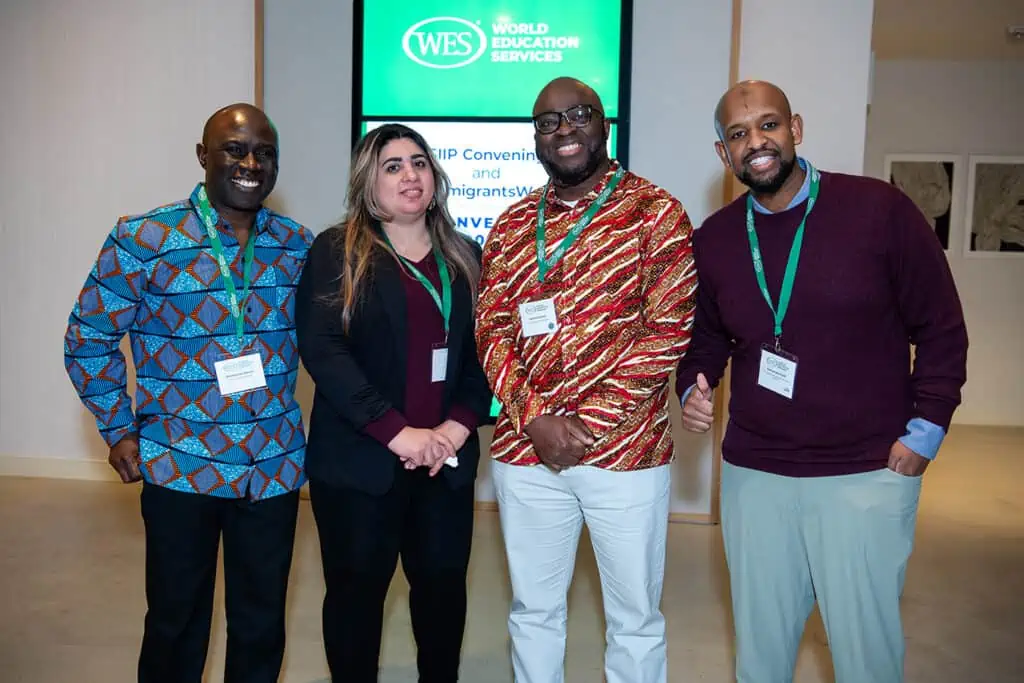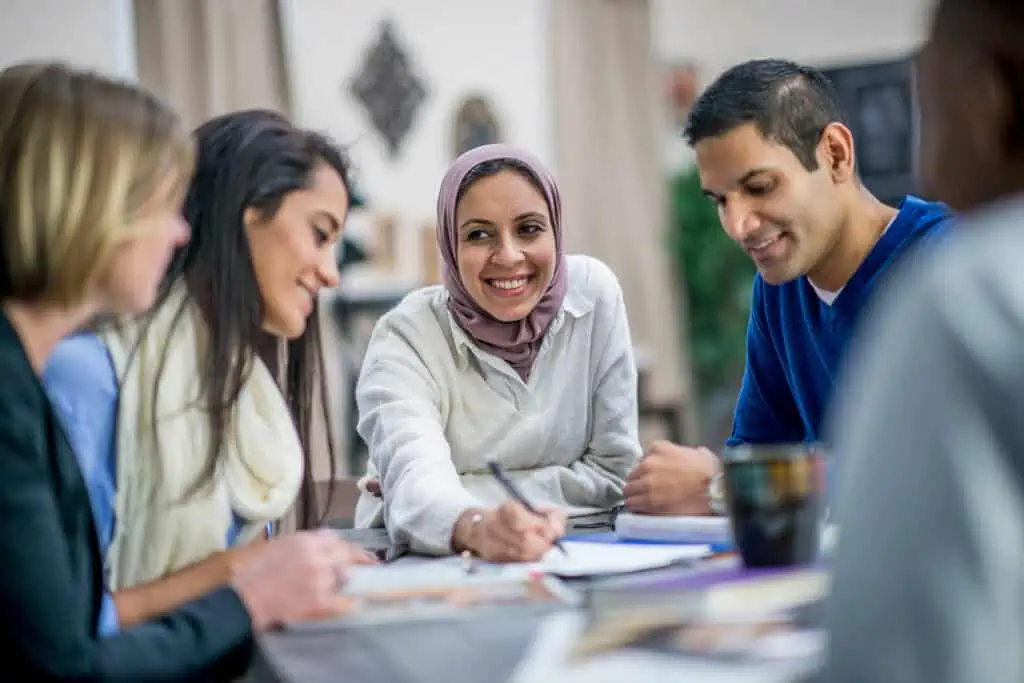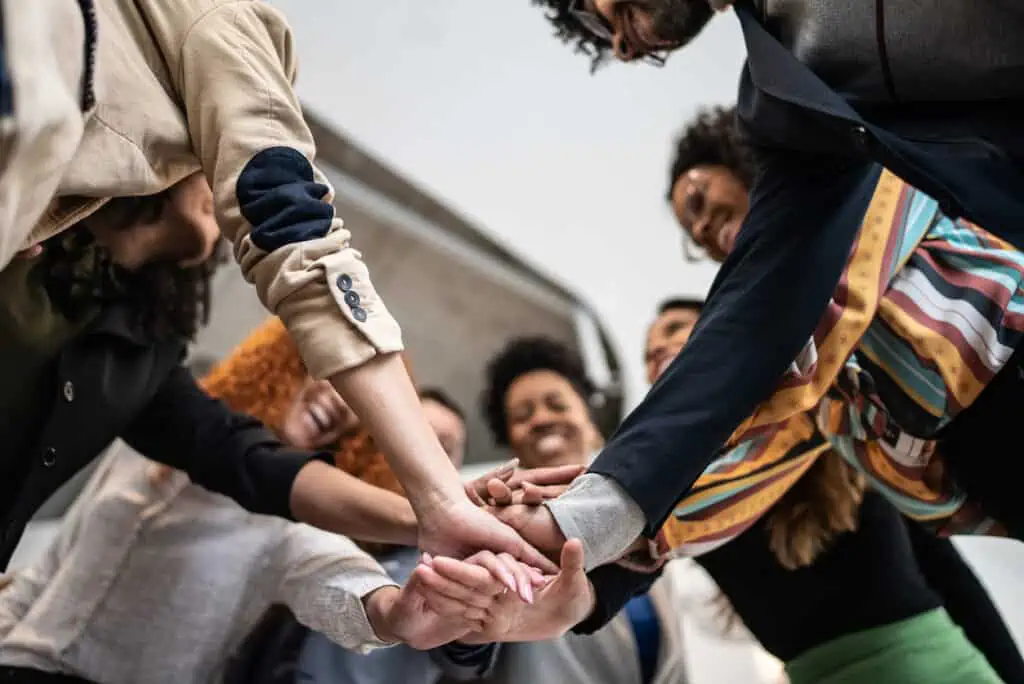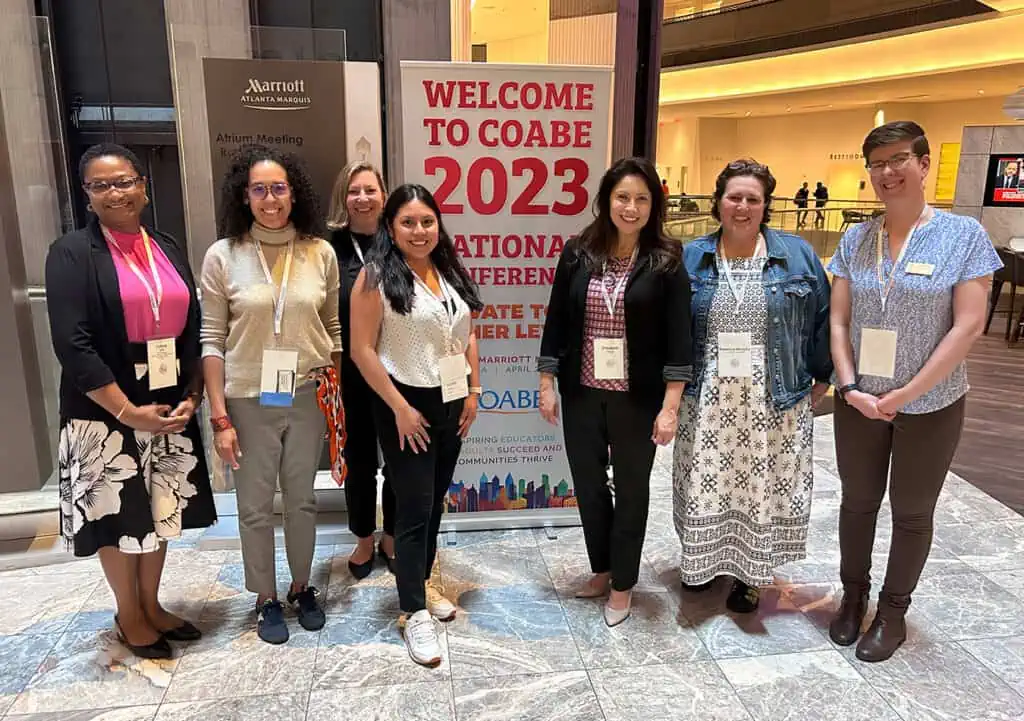Promoting Equitable Opportunity for Immigrant and Refugee Women in the U.S.
The 12.3 million immigrant and refugee women in the United States workforce represent 15 percent of all women employed in food and agriculture, health care and public health, education, and manufacturing. Yet even with increasing demand for workers in these critical sectors, systemic barriers have continued to limit equitable workforce opportunity. Of all workers, immigrant and refugee women experienced the highest levels of unemployment during the height of the COVID-19 economic crisis. In September 2020, just 46 percent of this group were employed, a 7 percent decrease from January of that year.
The U.S. economic recovery depends on both public and private efforts to ensure equitable career access. A partnership between New Women New Yorkers (NWNY) and the New York City Mayor’s Office of Immigrant Affairs (MOIA) provides an innovative model to address individual and structural barriers to equitable employment opportunity.
“Our largest focus is on workforce development—how can we provide support to immigrant women in their professional journey?” said Arielle Kandel, founder and CEO of NWNY. “How can we support them in finding not just a job, but rather work in their field of interest, where they can grow professionally and sustain themselves and their families?”
Individual and Structural Barriers Limit Opportunity
Pandemic-related economic disruptions have compounded long-standing employment disparities linked to gender and immigration status. In the fall of 2019, a WES survey of immigrants and refugees who hold international credentials revealed that respondents who identified as female were 9 percent less likely to be employed than their male counterparts. Female immigrants and refugees were also much less likely to feel that their current job offered good opportunities for career advancement.
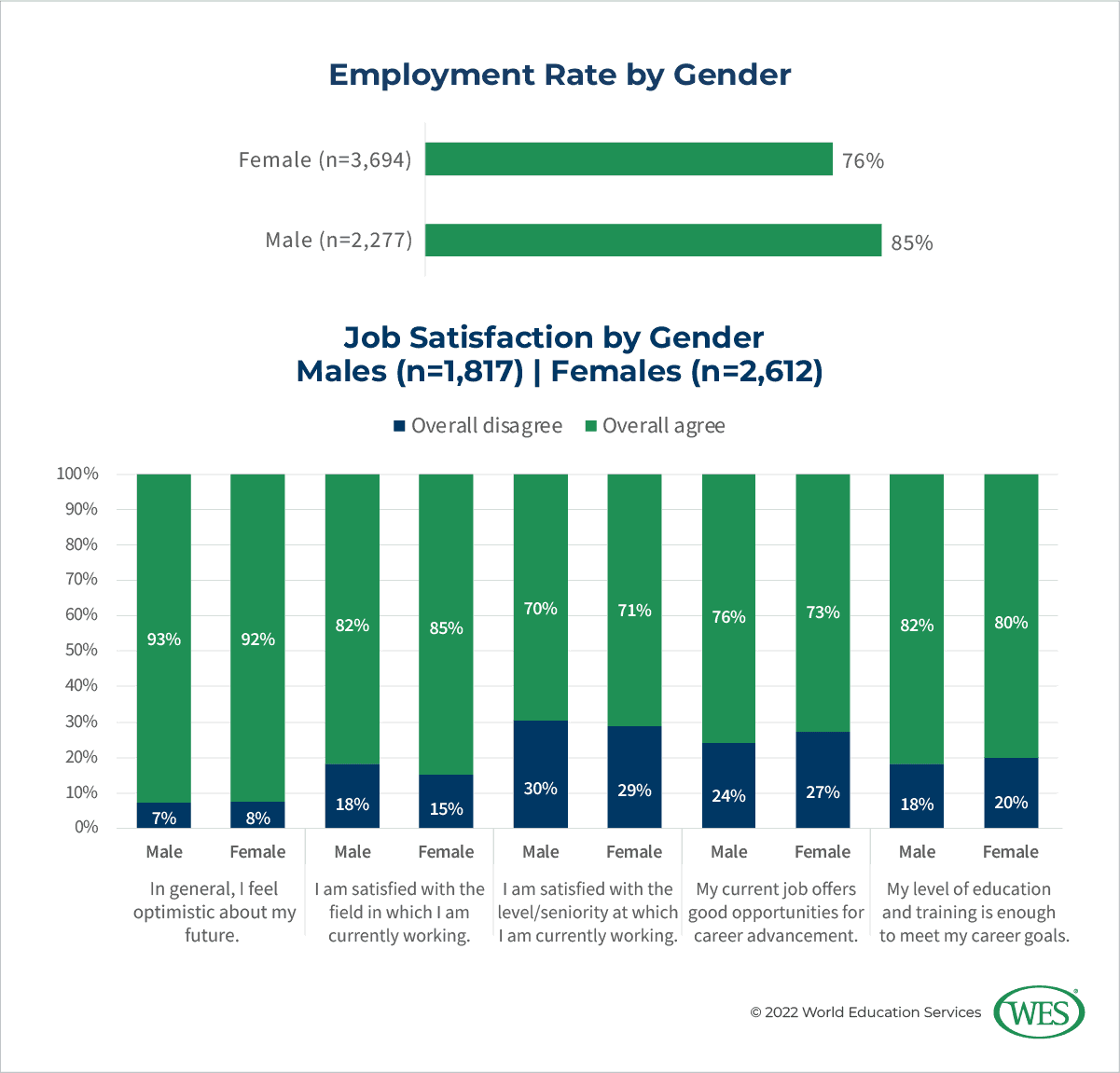
These survey respondents are among an estimated 2 million college-educated immigrants and refugees who are unemployed or underemployed in the U.S.; 60 percent hold international credentials. Various factors drive these employment disparities, including insufficient access to contextualized English-language learning, lack of effective workforce development training, and limited recognition of international credentials.
Immigrant and refugee women also face barriers related to gender. To NWNY’s Kandel, low confidence and low self-esteem, hiring practices and social norms that undervalue the work women do, and lack of access to affordable and reliable childcare limit NWNY clients’ workforce entry and advancement.
“We have a lot of moms in our community—lots of moms with young children. Even before COVID [access to childcare] was a challenge, but with school closures and the uncertainty of school situations, it has become even more of a challenge,” said Kandel. “One silver lining is that with the offering of our program virtually, it’s easier for women to join in with children in their care. We try to create as flexible a space as possible, in terms of our facilitators being aware of these barriers and challenges and creating an inclusive and equitable space for everyone.”
An Effective New York City-Based Model
The We Speak We LEAD (WSWL) program combines NWNY’s expertise in offering workforce development initiatives tailored to immigrant and refugee women with MOIA’s We Speak NYC, an Emmy Award-winning, English-language learning, and civic engagement platform launched in 2009.
“We felt that the best next step for our program was to create something that would go beyond a typical English-language learning or workforce class, something that would … build awareness of individual rights while giving participants tools that would highlight … how their unique talents and experiences were to be celebrated, and that they were highly sought after,” said Kareema Hussein, program director of We Speak NYC at MOIA. “[Partnering with NWNY] allowed us to develop programming that could speak to the immigrant experience as an empowering advantage.”
Launched in spring 2020, during the first wave of the pandemic in the U.S., WSWL is now an 8-week, 16-session workshop series designed to offer a comprehensive, three-pronged approach to addressing both individual and systemic barriers to employment. Participants acquire English-language skills, job-related competencies, and an understanding of workplace culture—all while working in a cohort-based community.
“The program gives learners the opportunity to teach and support one another throughout their participation in the program and even after it ends. So we’re building a sense of community within each cohort,” said Hussein.
In addition to completing a curriculum developed in partnership with the City University of New York, WSWL participants can access NWNY’s tailored career services, including networking sessions with local employers and one-on-one support services. All programming is currently offered online.
“These allow us to further support the participants in putting into practice the skills they learn in the program…and also to build their confidence and start building their professional networks,” said Kandel. “With company sessions, we create safe spaces where participants can meet with professionals in their field of interest and practice their interview skills, receive feedback and advice on their professional goals.”
Innovative Work-Based Learning Opportunities
Since 2020, nearly 40 immigrant and refugee women have participated in two WSWL cohorts. Nearly 70 percent of participants hold a bachelor’s degree or higher, with almost all—97 percent—having completed their education in another country. At the start of both cohorts, 90 percent of participants were either unemployed or employed outside of their field of interest. A year after completing the 2020 cohort, four of the nine graduates had moved to full-time employment and two had started their own business.
Building on this momentum, WSWL organizers continue to innovate and improve the program. This spring, WSWL will offer paid work-based learning opportunities to graduates of NWNY’s workforce development programs, a “train the trainer” model that will help participants add U.S.-based training and work experience to their résumé. has shown that immigrants and refugees with U.S. credentials are more likely to be employed than those who hold international education and experience alone.
“Our graduates will contribute directly to the facilitation and operation of WSWL. These work-based learning opportunities provide graduates with training and tangible work experience in the U.S. workplace,” said Kandel.
Scaling the Work
WSWL offers a promising model for other communities committed to opening pathways for immigrant and refugee women to reach their career goals—and to address worker shortages in key industries like health care and education. Partnerships like the collaboration between NWNY and MOIA allow non-profit organizations to leverage public funds and avail themselves of broad outreach platforms while they also help government agencies access expertise in delivering effective direct service programming.
Hussein, of the New York City MOIA, suggests that the first step in forming successful partnerships is for non-profit leaders to understand that their expertise is a resource for local government–and to approach government agencies with confidence.
“[MOIA] serves three million immigrants that speak more than 200 languages. We engage with communities, partners, and advocates to best understand what the needs are on the ground. If you’re a non-profit or in the private sector … start that engagement, start those conversations. It’s about being persistent and advocating for what you believe the need is in your community.”
A Dynamic Partnership
Partnering with New York City’s MOIA has been transformative for NWNY. Kandel encourages other non-profits to pursue similar opportunities.
“We’re still small and fairly young, and still we were able to engage with the mayor’s office,” she said. “It’s been a game changer in terms of helping us to build capacity to leverage the outreach power of the mayor’s office in immigrant communities. If you’re a small organization, if you’re a young organization, don’t be deterred by that. There are opportunities to build partnerships to work with other community-based organizations and city agencies to move your programming forward.”
Kandel and Hussein shared details on We Speak We LEAD and the growing collaboration between NWNY and MOIA in a WES Global Talent Bridge webinar, “Supporting the Career Advancement of Immigrant and Refugee Women in the U.S.,” convened during Women’s History Month. Access the full conversation here.


